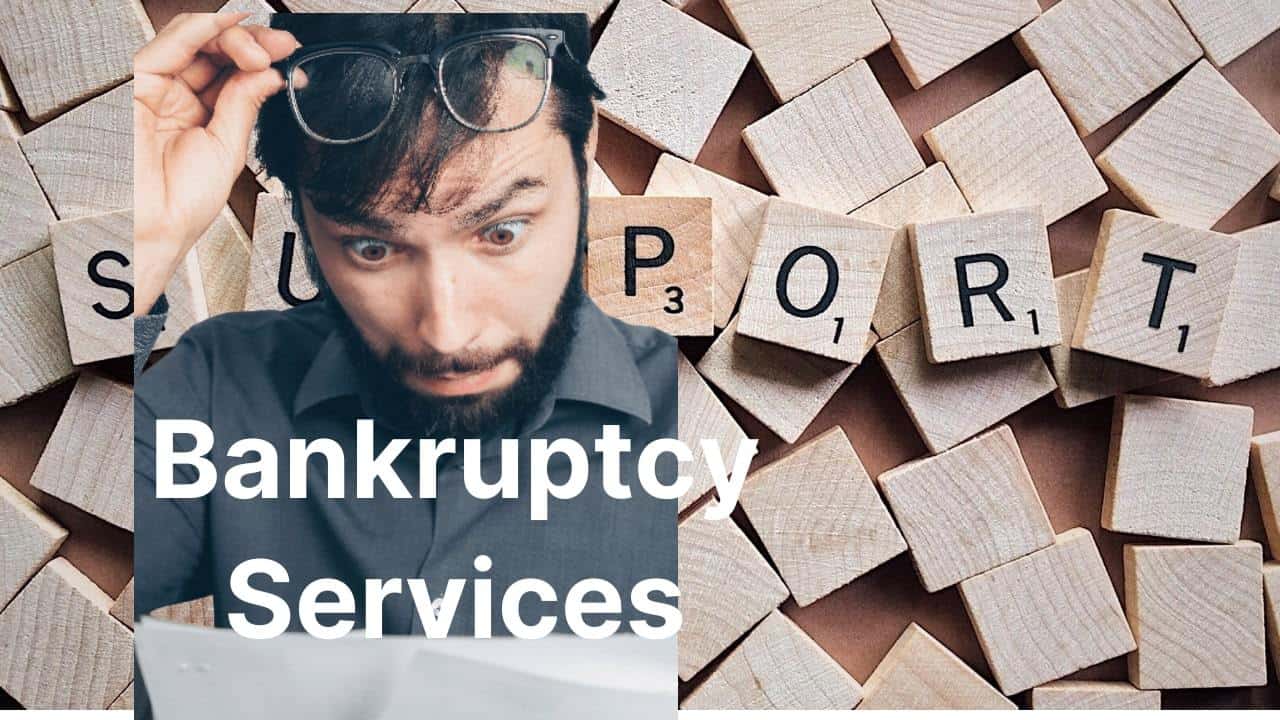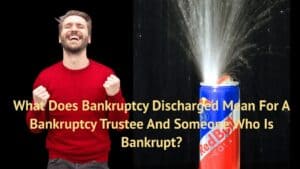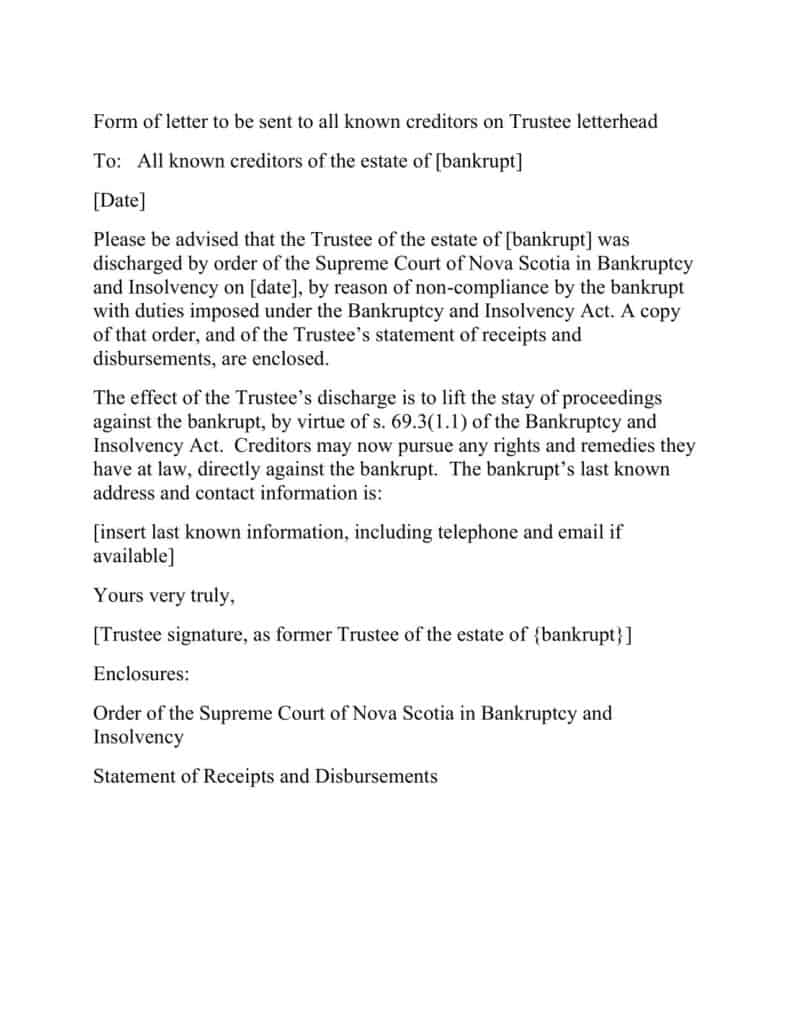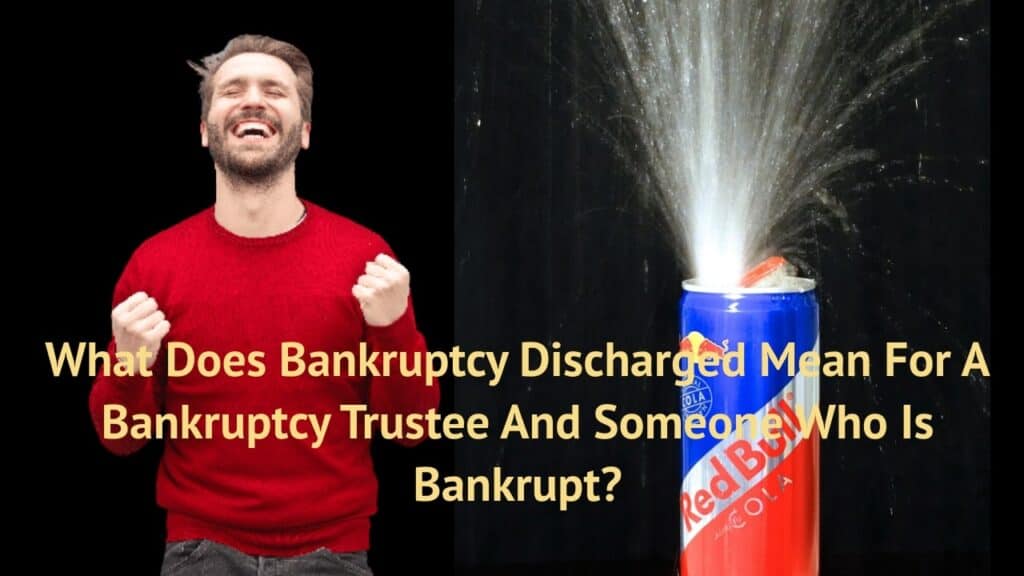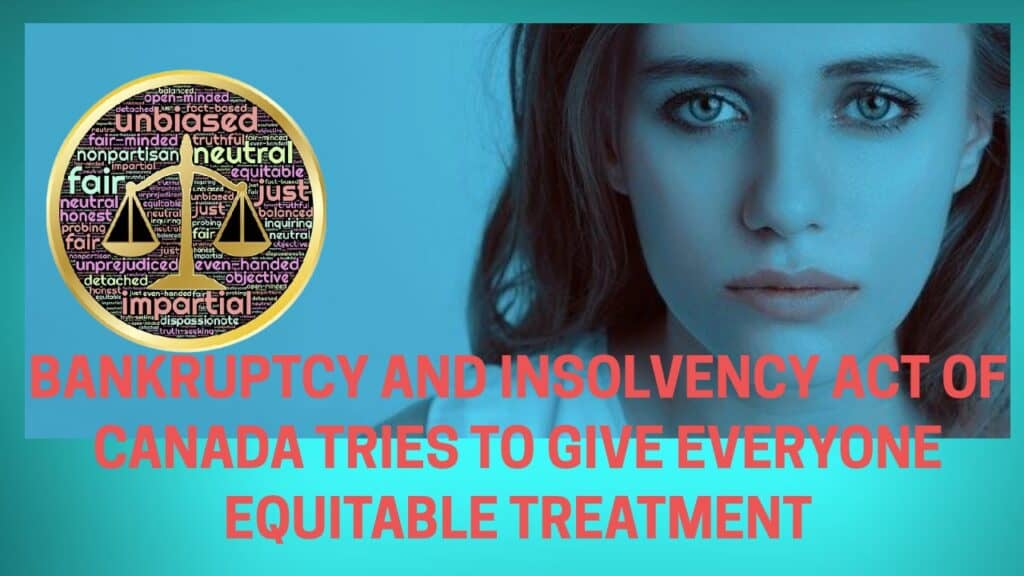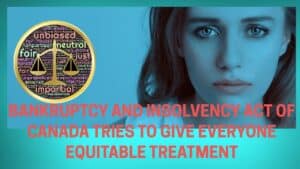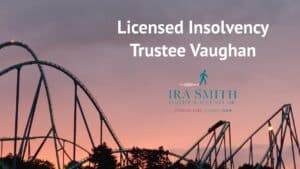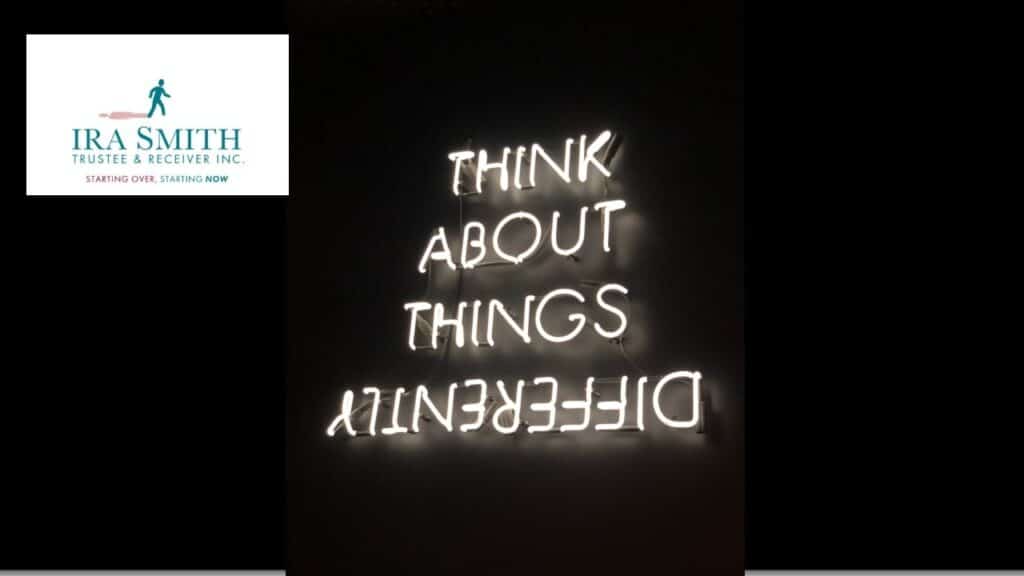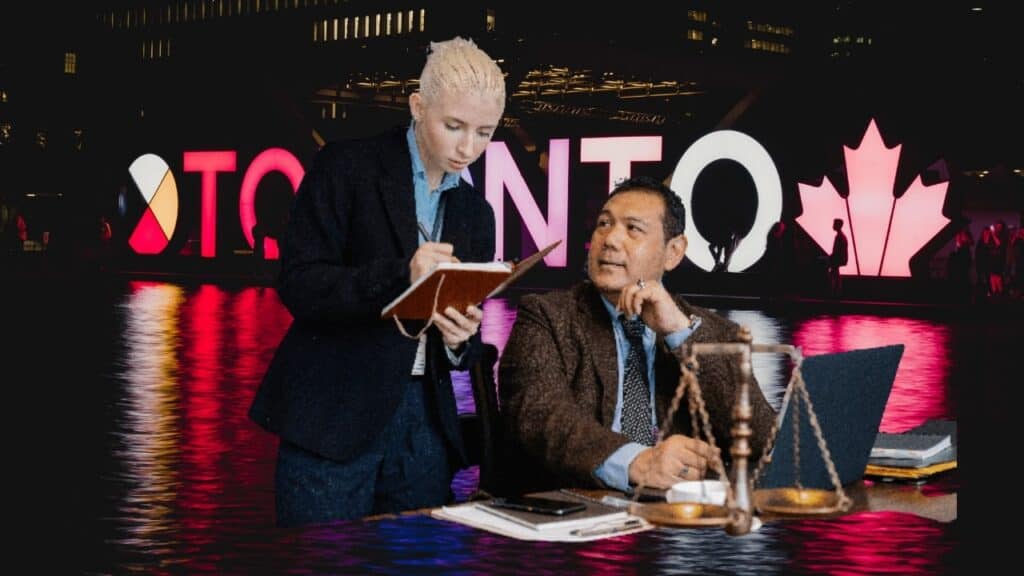Bankruptcy services and FAQ information
Bankruptcy is a last resort for Canadian individuals, entrepreneurs and companies looking for a debt solution. However, bankruptcy services are just one of the available options we canvass with you to provide the opportunity to rebuild your financial affairs and your life.
I help people and senior company management understand bankruptcy and the other options available to rebuild their life. Frankly, bankruptcy is always the last option and hopefully in most cases, can be avoided.
In this Brandon’s Blog, I provide my best FAQ answers to common questions about personal bankruptcy services. The answers below will contain all the information you need to know. So here we go. In the future Brandon’s Blogs, I will talk about corporate bankruptcy services in addition to personal and corporate restructuring as alternatives to bankruptcy services.
Bankruptcy services: Who files for bankruptcy and why?
Many people who are considering looking into the need for the bankruptcy process may feel alone and lost. This is because they may not know anyone who has gone through the same thing, making them feel like they have no one to talk to about it. Bankruptcy can be very scary and intimidating, especially if you feel like you’re the only one experiencing financial difficulties.
Financial problems affect people from all walks of life and all income levels. It doesn’t discriminate, affecting married and single people alike, regardless of age. Seniors and those just starting out in life, consumers and companies are all susceptible to needing bankruptcy services.
The Office of the Superintendent of Bankruptcy Canada (OSB) keeps insolvency statistics. It used to be affiliated with a part of the federal government called Industry Canada. Now it is part of what is called Innovation, Science and Economic Development Canada. The OSB has not yet released the 2021 annual insolvency statistics. In 2020 99,244 insolvencies were filed in Canada. This was a 29.5% decrease in insolvencies filed with the OSB in 2020 compared to 2019. This is the largest annual decrease ever. The decrease can be largely attributed to the outbreak of COVID-19 and the various emergency response measures that followed.
The number of consumers filing for insolvency decreased from 137,178 to 96,458, while the number of businesses filing for insolvency decreased from 3,680 to 2,786. The proportion of proposals among consumer insolvency filings increased from 60.3% to 65.9%.
There are two things to remember from these statistics:
- You are not alone. Many people face financial difficulties.
- There are options available for avoiding bankruptcy services.
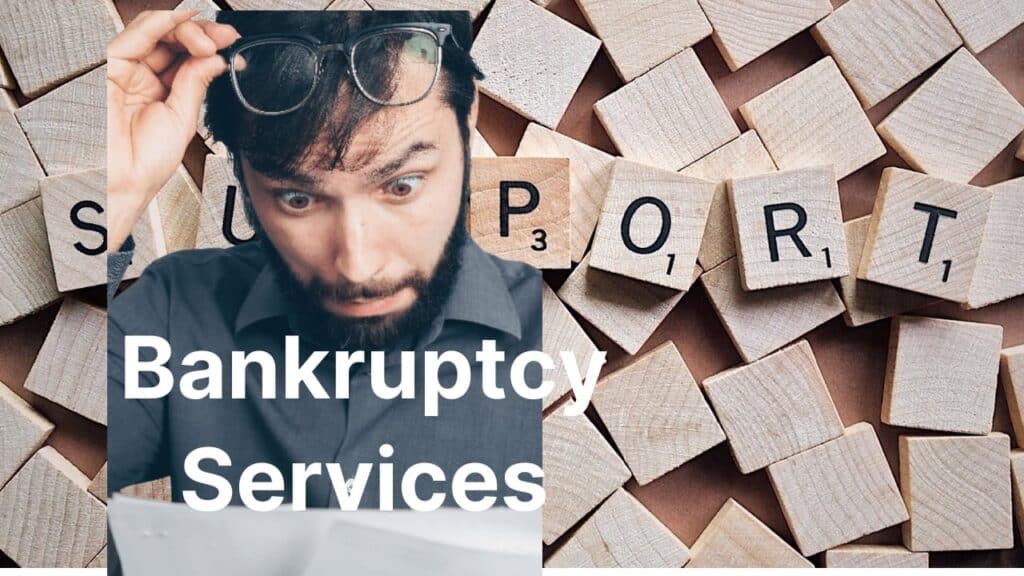
bankruptcy services
Bankruptcy services: Can bankruptcy clear debt in Canada?
Most outstanding debt owed to unsecured creditors is cleared not by a person filing for bankruptcy, but by that person receiving their absolute bankruptcy discharge.
Even after bankruptcy, some debts still need to be paid. This includes a student loan if it has been less than 7 years since you stopped being a student, alimony and child support, fines and penalties imposed by the court, and any debts due to fraud.
Also, any secured debts, such as a registered car loan or mortgage against real estate are not discharged by a bankruptcy – either personal bankruptcy or corporate bankruptcy.
What debts cannot be discharged through personal bankruptcy services in Canada?
See the section “Bankruptcy services: Can bankruptcy clear debt in Canada?” directly above.
Bankruptcy services: How much debt must you accumulate in order to file for bankruptcy in Canada?
The minimum amount of unsecured debt needed to file for bankruptcy in Canada is $1,000, as stipulated by the Bankruptcy and Insolvency Act (Canada) (BIA). In addition, the person, partnership or company must also be insolvent. Bankruptcy is a legal process. Insolvency is a bad financial situation.
Bankruptcy services: What debts are not erased in bankruptcy?
See the section “Bankruptcy services: Can bankruptcy clear debt in Canada?” directly above.

Bankruptcy services: What are the three types of bankruptcies?
There are several ways I could answer that question. For example, there are:
- Personal bankruptcy is also sometimes referred to as consumer bankruptcy.
- Small business bankruptcy. This would mainly be for a proprietorship or partnership.
- Corporate bankruptcy – small or large companies.
Another way of answering the same question would be:
- Voluntary bankruptcy – an assignment in bankruptcy being filed by the person or company.
- Involuntary bankruptcy – a bankruptcy happening because one or more creditors issued a bankruptcy application resulting in a bankruptcy order.
- Bankruptcy protection is not bankruptcy at all. It is a financial restructuring performed by a licensed insolvency trustee. The Office of the Superintendent of Bankruptcy Canada maintains a searchable list of individuals licensed to act as a licensed insolvency trustee in Canada.
My final way of answering the same question is:
- Consumer proposal – This is a financial restructuring under the BIA to avoid bankruptcy for a person who owes $250,000 or less not including any debts secured against the person’s principal residence.
- Proposal – This is a financial restructuring under the BIA to avoid bankruptcy for a person who owes more than $250,000 (not including any debts secured against the person’s principal residence) or for a company with any amount of debt.
- Financial restructuring under the Companies’ Creditors Arrangement Act – This is what the media calls bankruptcy protection in order to restructure and avoid bankruptcy. To qualify to file under the Companies’ Creditors Arrangement Act statute, the company must have a debt load of $5 million or more.
All of the above bankruptcy services can only be administered by a licensed insolvency trustee (formerly called a bankruptcy trustee or trustee in bankruptcy), but they are not all bankruptcy.
I guess these are really 9 types!! It all depends on how you wish to look at it.
Bankruptcy services: What are the consequences for your assets when declaring bankruptcy?
A bankruptcy does not mean you have to give up all your assets. There are rules about bankruptcy exemptions in bankruptcy law. Also, every province/territory has laws that say what assets you can keep and how much equity you can have. These types of assets are called exempt assets. There are certain assets that you are allowed to keep that are not accessible to your creditors during a bankruptcy. These assets are exempt under federal law, provincial law or both.
In order to understand what exempt assets are in bankruptcy in Ontario, we must first look at the BIA. Section 67(1) of the BIA addresses the bankruptcy exemption issue specifically. It outlines what property of the bankrupt is available to creditors does and does not include.
Property that is not included is:
- Property that is held in trust by the bankrupt for any third party.
- Assets that are not subject to seizure under provincial law.
- Payments to the bankrupt are made under a program that can be described as social assistance provided by the federal or provincial government.
- Retirement Savings Plans – The bankrupt’s RRSP (other than for the total of payments made in the 12 months before bankruptcy) or RRIF cannot be touched even in bankruptcy.
As mentioned before, one type of asset that cannot be seized during bankruptcy is any property that is protected under provincial law. In Ontario, the amounts prescribed for exemptions are outlined in the Ontario Execution Act.
These exemptions include:
- Household furnishings and household appliances – $14,180.
- Tools and other personal property used to generate income:
- Exemptions for farmers, being a debtor engaged exclusively in cultivating the soil or farming (and therefore it is that farmer’s principal source of primary income), $31,379 for livestock, fowl, bees, books, tools and implements, and other chattels ordinarily used by the debtor; $14,405 for any other case.
- $7,117 for a motor vehicle.
- $10, 783 for a principal residence.
Since these exemptions are provincial, you need to look at provincial/territorial laws for other jurisdictions in Canada.

Bankruptcy services: What are the implications of personal bankruptcy on retirement plans?
There are 4 main ways Canadians save to live comfortably in retirement. They are:
- The principal residence.
- RRSP..
- Investments.
- Private pension plan.
#1 – The principal residence and bankruptcy
For many Canadians, their house is the biggest investment they make and the majority of their savings are tied up in it. Owning a home makes people more confident about their financial future.
If the owner of a home becomes bankrupt, either through an assignment in bankruptcy or bankruptcy order, the debtor’s equity in the home is an asset for the licensed insolvency trustee to sell. The exception is if the home is fully encumbered so that there is only $10,783 or less of equity (in Ontario) in the home.
If the bankrupt is a joint owner, then the Trustee only has access to the bankrupt’s interest, which would be half the equity.
The loss of wealth from the sale of the house or the encumbrance of the house will make it take much longer to build back the equity by paying off the mortgage(s). In the case of joint ownership, the natural purchaser would be the non-bankrupt spouse or partner who owns the other half. The person would likely have to take on more debt to buy the equity from the Trustee.
The loss of wealth as a result of bankruptcy can mean having to work longer than originally planned. This is one way that bankruptcy can affect retirement.
#2 – Your RRSP and bankruptcy
It is the rare debtor that seeks an insolvency option and has a significant amount in their RRSP. This is notwithstanding that a creditor cannot seize your RRSP funds in Ontario.
If you think about it, if you have a 7-figure RRSP and a 6-figure total debt, then you are not insolvent. To be eligible to use the Canadian insolvency process, you must meet certain conditions, one of which is being insolvent.
The only amount of your RRSP that is affected by bankruptcy is any contributions made to the RRSP in the 12 months before the bankruptcy happened. That amount is subject to seizure by your Trustee. Rather than seizing that amount from your RRSP, the Trustee will require you to pay that amount to the Trustee for the benefit of your bankruptcy estate.
Not having a sizeable RRSP to start withdrawing at retirement obviously will affect your retirement plans.
#3 – Bankruptcy and investments
People who are able to save for retirement invest their money to make it grow in addition to an RRSP and principal residence. Investments such as stocks, bonds and mutual funds are very typical. There are two general ways these investments can be held: (i) investment in funds maintained by a life insurance company naming a designated beneficiary (either a spouse or blood relative); and (ii) investments held with your broker.
If you have investments through a contract of insurance and you name your spouse, child, parent, or grandchild as the beneficiary, then those investments are exempt from seizure in Ontario. If you file an assignment in bankruptcy will not have any effect on these investments, and you will be able to keep them. Therefore, this will not affect your retirement plans.
If your investments are through the brokerage arm of your bank, then your investments can be seized in Ontario. These investments will be lost in your bankruptcy and this will affect your retirement plans. If your spouse or partner purchases your interest in these investments from the Trustee, then whatever debt the purchaser had to take on to buy them may affect retirement plans.
#4 – Bankruptcy and a private pension plan
Not everyone in Canada has a private pension plan through their employer. Individuals who are self-employed certainly don’t have it. Having a private pension plan can relieve some of a person’s financial worries as they head toward retirement.
In Ontario, private pensions are protected from seizure and therefore not available for the Trustee. However, if you are already retired and are receiving the private pension income, that income is taken into account when calculating any surplus income payments you may have to make to your Trustee.

How bankruptcy services work in Ontario: What is the average length of time for a person to be discharged from bankruptcy in Canada?
To be discharged from bankruptcy in Canada can differ based on whether it is a first or second bankruptcy, and whether the bankrupt has any surplus income contributions to make. For a first-time bankrupt it can take 9 months (no surplus income) -21 months (with surplus income contributions). For a second time or more bankruptcy, it takes 24 months (no surplus income) to 36 months (surplus income).
Bankruptcy services: Surplus income
Surplus income is not an ideal term to describe the extra money an individual has. Many people would not feel they have surplus income, especially when they are dealing with debt. However, in the bankruptcy context, surplus income refers to a calculation that determines how much money a bankrupt individual must pay into their bankruptcy estate for the benefit of their creditors.
When you file an assignment in bankruptcy or have a bankruptcy order made against you in Canada, your monthly income is taken into consideration. To have what is supposed to be a practical standard of living during the bankruptcy period, the Office of the Superintendent of Bankruptcy Canada establishes a standard on an annual basis.
The earnings criteria are adjusted for inflation each year and based on information collected by Statistics Canada. Your licensed insolvency trustee decides how much you pay by making monthly payments into your bankruptcy estate each month based on these standards.
It is really the Canadian poverty line that is established by the Office of the Superintendent of Bankruptcy Canada. Regardless of where you reside in Canada, there is no difference between an expensive city as well as a remote area. Just the most fundamental demands of individuals in addition to members of the family are considered.
Bankruptcy services: Debt problems got you down? Feeling overwhelmed?
I hope this Brandon’s Blog on personal bankruptcy services was helpful to you in understanding more about the personal bankruptcy system in Canada.
If you or your company has too heavy a debt load, we understand how you feel. You’re stressed out and anxious because you can’t fix your or your company’s financial situation on your own. But don’t worry. As a government-licensed insolvency professional firm, we can help you get your personal or corporate finances back on track.
If you’re struggling with money problems, call the Ira Smith Team today. We’ll work with you to develop a personalized plan to get you back on track and stress-free, all while avoiding the bankruptcy process if at all possible.
Call us today and get back on the path to a healthy stress-free life.
